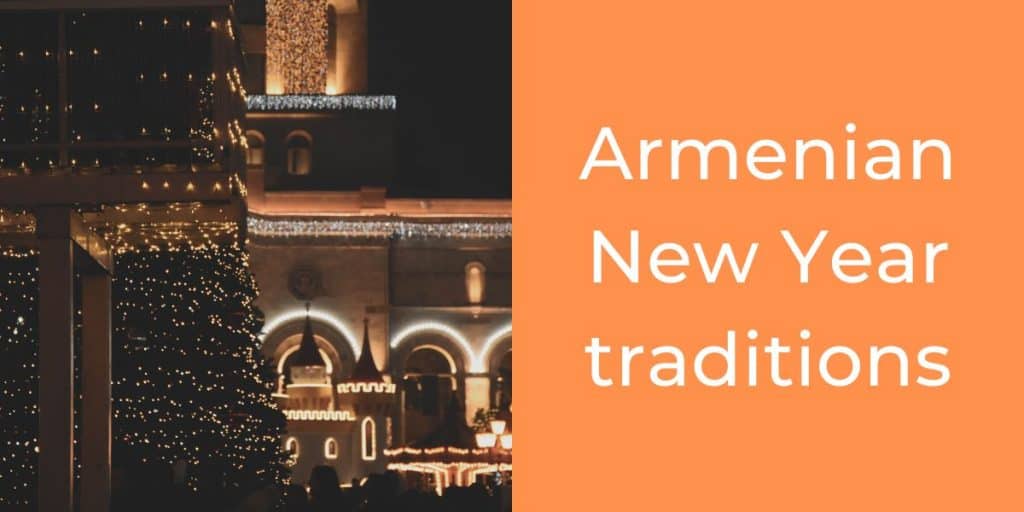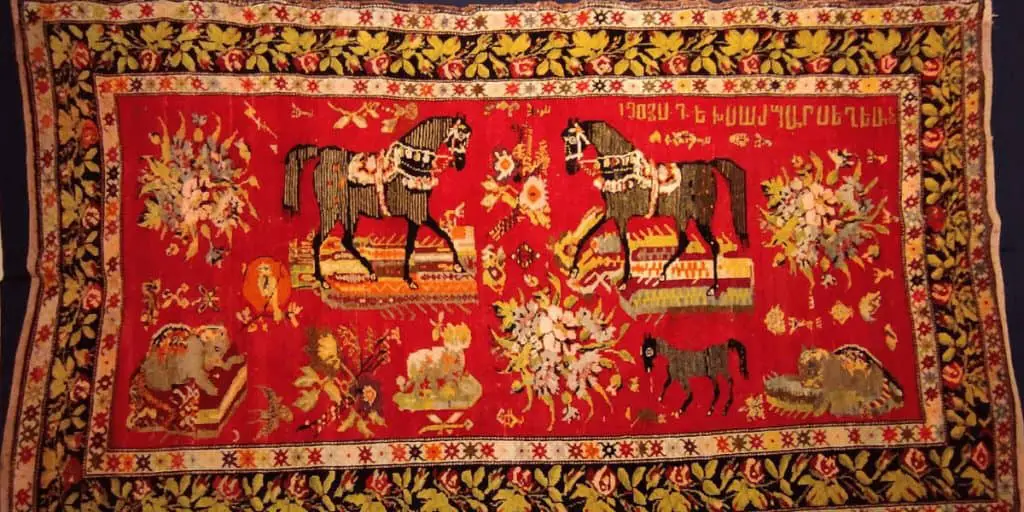Armenians keep to some traditions that may seem weird to foreigners. But what does the word weird mean? If you keep an open mind, it means that someone is doing something in a different way. I am going to talk about the ways Armenians do things. Some of these behavioral patterns may not be called traditions in common sense but they are so much rooted in the Armenian culture that we consider them part of our tradition. Let’s see what these weird Armenian traditions are.
Weird Armenian traditions:
- Close physical contact
- Paying each other’s fees
- Pouring water for luck
- Eating a very salty cookie before bed
- Animal sacrifice (matagh)
- Vardavar
- Red apple
Let’s dive into each of them one by one. And if you know more, let me know on Twitter or Instagram with #ArmeniaTravelTips.
Close physical contact
Traditions of physical contact vary by culture. In some cultures, you should not get closer than the accepted intimacy distance. In Armenia, we don’t take people’s personal space too seriously. Armenians are very tactile – they’ll touch you within the first 5 minutes of contact. Often even complete strangers, when having a conversation with you, might touch your shoulder or arm. This doesn’t imply anything beyond friendliness. So, don’t freak out. 🙂
Walking in the streets of Armenian cities, you will often see girls and even guys walking side by side while having their arms locked with each other. This is a perfectly acceptable behavior here for people of all gender expressions and identities. However, it’s becoming less common for men in the big cities, especially with the younger generation. But overall, we believe that physical touch adds to the relationship making it clear to the person that they are cared for. So we don’t shy away from touching our friends, relatives, and other close people.
Paying each other’s fees
The other thing about Armenians is that friends pay for each other. Now, you might expect this at a cafe or a restaurant. But here we are even talking about small things, like your bus ticket! 🙂 Or a fee at the post office, or something random like that.
Armenians are not as well-off as their Western friends, but if you are sitting with an Armenian in a café, most probably they will not let you pay the bill or even your part. If you pay, there is a chance they will be offended. The Armenian men always pay the bill when on a date, or out with the family. That’s part of the tradition. Older people typically take the bill for the younger ones. And sometimes when there is a mismatch – e.g. I’m having drinks with my older sister – then we fight over the bill. 🙂
Now, to be fair, I gotta admit that this is changing quite rapidly as our society evolves. Women have pretty much equal access to the job market, even though we still have work to do on the “equal pay” front. But the notion of both genders working, and the general rise of the middle class, means that the younger generation doesn’t see the need to fight for who’s going to take the bill all the time. Things are certainly more chill these days.
Pouring water for luck
In Armenian culture, water is considered a natural, life-giving, and purifying thing. Water has been mentioned in Armenian legends and folklore since ancient times. It has been used in various sacred rituals and ceremonies, including in the Armenian church. The cult of water has played a special role in the Armenian mentality, and it formed some traditions.
One of such traditions is to pour water after a person if they go for an important business. For example, if a student goes to take an exam, their relatives may pour water after them as soon as they leave the house. Armenians believe that pouring water after a person cleans bad energy and gives them luck.
In my life, I always witness this when I travel, or leave Armenia for a significant period of time. My sister would always pour a small bucket of water on our doorsteps as soon as I leave the house. That way she hopes that I have a smooth and safe journey.
Eating a very salty cookie before bed
This one I consider one of the most naïve traditions that Armenians believe. They say that on the night of the Day of St. Sargis you can see your soulmate in your dream if you eat a salty cookie. I know this sounds ridiculous, but it’s actually a fun challenge. I remember as a teen eating a terribly salty cookie made by my grandma, and trying to fall asleep when I was dying thirsty.
So, St. Sargis is the patron of youth. And, I guess, by definition, all youth is longing for love. So, a mental connection between this saint and romance has been established. The idea is… On the eve of the feast, young people eat salty cookies hoping their future soulmate will visit them in their dream to give them water. If no one gives you water in your dream, ta-ta-tam, you stay single! Then you test your luck next year! If you want to try this at home, here is a guide on how to make a salty cookie for this special day.
Animal sacrifice (matagh)
One of the most interesting Armenian traditions is called matagh. Armenians are sacrificing a sheep to God which may be an act of gratitude for an act that happened in their lives, or it may be a request to God aimed at success in a future event. Then we cook the sheep meat and distribute the meal among neighbors and relatives.
Matagh has a long history in Armenia. It dates back to the early Christian era of Gregory the Illuminator. Gregory Illuminator is the guy who converted King Trdat to Christianity and actually spread Christian belief among Armenians. He offered thanksgiving sacrifice to God by killing animals and distributing them to the poor. So, I guess this is where it originated. Or, to be more pragmatic, most likely animal sacrifice ceremonies were ingrained in our culture by the time Christianity came here, so it was easier to turn it into something “Christian” than to force people to stop sacrificing animals.
Vardavar
As I said earlier, Armenians have a cult of water. We have a festival called Vardavar when people drench each other with water. If you are a naïve passerby in Armenia during the days of Vardavar (which is normally 98 days (14 weeks) after the Christian Easter Holiday), then you might get a big surprise – a bucket of water on your head!
The Armenian Apostolic Church accepts Vardavar as a Christian festival (read by blog post how Armenians became Christian). However, its roots go back to pagan mythology. It is originally associated with the Goddess Astghik – the Goddess of water, beauty, love, and fertility in the pagan culture of Armenia. Astghik would spread roses (vard) in honor of her lover Vahagn – the God of fire and war. Hence the name Vardavar.
Red apple
This one is a bit embarrassing, lol, and thankfully very outdated. When a couple gets married, after the first night, the mother-in-law goes to check if the bed sheet “is red”, i.e. if there is blood on the linen. This is how in the past they checked the virginity of the bride. Then the groom’s family would send red apples to the bride’s family as a symbolic “thank you”. In some regions, they’d also hang the stained sheet on the window to inform all the neighbors about the fact their bride was a virgin.
Absolutely embarrassing! But to tell you honestly, very few keep to this tradition these days. Definitely not in the cities. I wrote more about the red apple Armenian tradition here. So, check it out if you want to learn more. But as I said, thankfully it’s not practiced anymore. So, hopefully, it’s more of an interesting thing to know kind of information for you than anything you’d ever come across.
Wrapping up
Although some Armenian traditions are truly weird, they add up to the culture and make it unique, I think. So, even though some things may be shocking, they still play an important role in how Armenians identify themselves. If you found this blog post interesting, ping me on Twitter or Instagram with #ArmeniaTravelTips. It’s interesting to know what you think.
Featured image credit: Jordi Zamora on Unsplash
Please help me make Armenia more popular!






